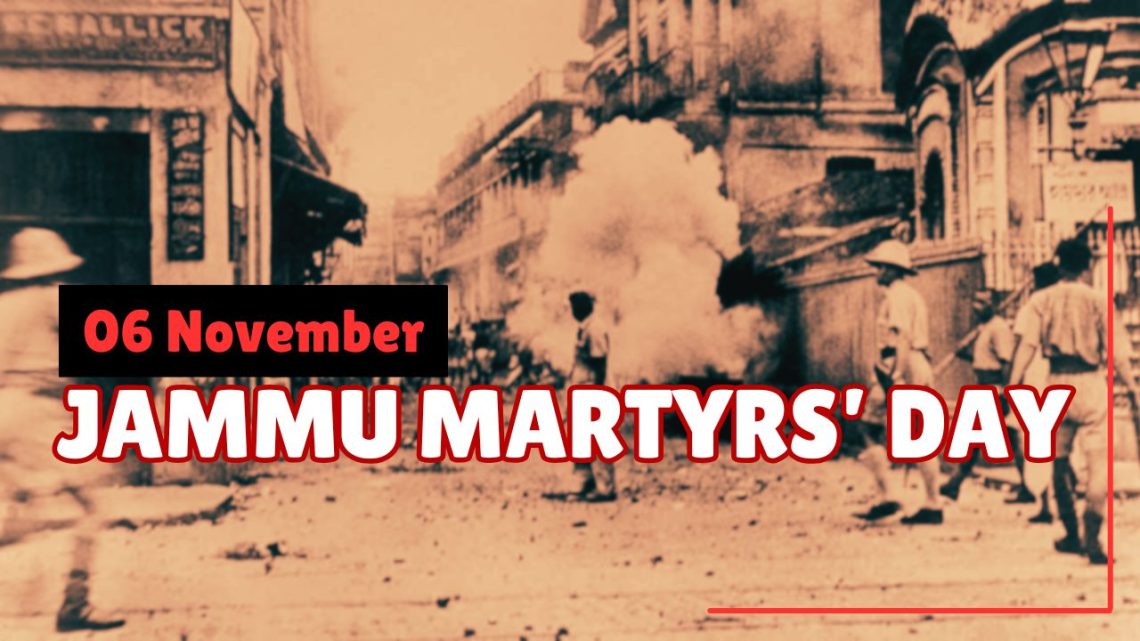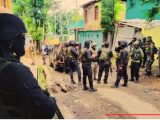
Kashmiris Observe Jammu Martyrs Day with Renewed Appeals for Right to Self-Determination
November 6, 2024Kashmiri leaders and activists have described the massacre as a “dark chapter” in human history and a grim example of what they see as Hindutva-driven violence targeting the Kashmiri population.
Kashmiris worldwide are observing Jammu Martyrs’ Day to honor the tens of thousands of Muslims who were killed in Jammu in November 1947. The day, commemorated on both sides of the Line of Control, serves as a solemn reminder of the sacrifices made by the victims, reflecting Kashmiris’ enduring struggle for self-determination and freedom.
The massacre of November 1947 marked one of the most significant episodes of violence in the region. In the aftermath of the partition, hundreds of thousands of Muslims were killed by Dogra forces, the Indian Army, and Hindu extremist groups as they attempted to flee to Pakistan. This tragic event, seen as one of the earliest cases of ethnic cleansing post-World War II, was intended to alter Jammu and Kashmir’s demographics by reducing the Muslim population in Jammu.
Events to remember the massacre were held in Azad Jammu and Kashmir (AJK) and Pakistan. These included anti-India demonstrations, prayer gatherings, and seminars, all of which paid homage to those who lost their lives. The day began with special prayers in mosques across AJK, with attendees calling for the liberation of Indian-administered Jammu and Kashmir and for the well-being of Pakistan and AJK. Quran recitations and gatherings organized by social, political, and religious organizations highlighted the profound impact of the massacre on the Kashmiri identity.
Kashmiri leaders and activists have described the massacre as a “dark chapter” in human history and a grim example of what they see as Hindutva-driven violence targeting the Kashmiri population. These leaders argue that the violence and attempts to shift demographics seen in 1947 have echoes today in Indian-administered Jammu and Kashmir (IIOJK), where the current BJP-led government is accused of enacting policies aimed at undermining the Kashmiri Muslim community’s political and cultural identity. Activists allege that such policies are designed to dilute the demographic and cultural fabric of the region, using measures they describe as systematic genocide.
Estimates indicate that over the past 77 years, more than 500,000 Kashmiris have lost their lives due to Indian military actions in IIOJK. Civil society organizations and Kashmiri activists are calling on the international community to take action, urging global leaders to hold the Indian government accountable for alleged war crimes and violations of human rights. For many Kashmiris, the violence and ongoing denial of self-determination stem from the unresolved status of Jammu and Kashmir.
As they remember the 1947 martyrs, Kashmiris worldwide are reaffirming their commitment to continue their resistance against what they view as oppressive occupation, urging the international community to address and resolve the Kashmir issue. The memories of the massacre remain a deeply embedded part of the Kashmiri collective consciousness, symbolizing a call for justice and peace.

